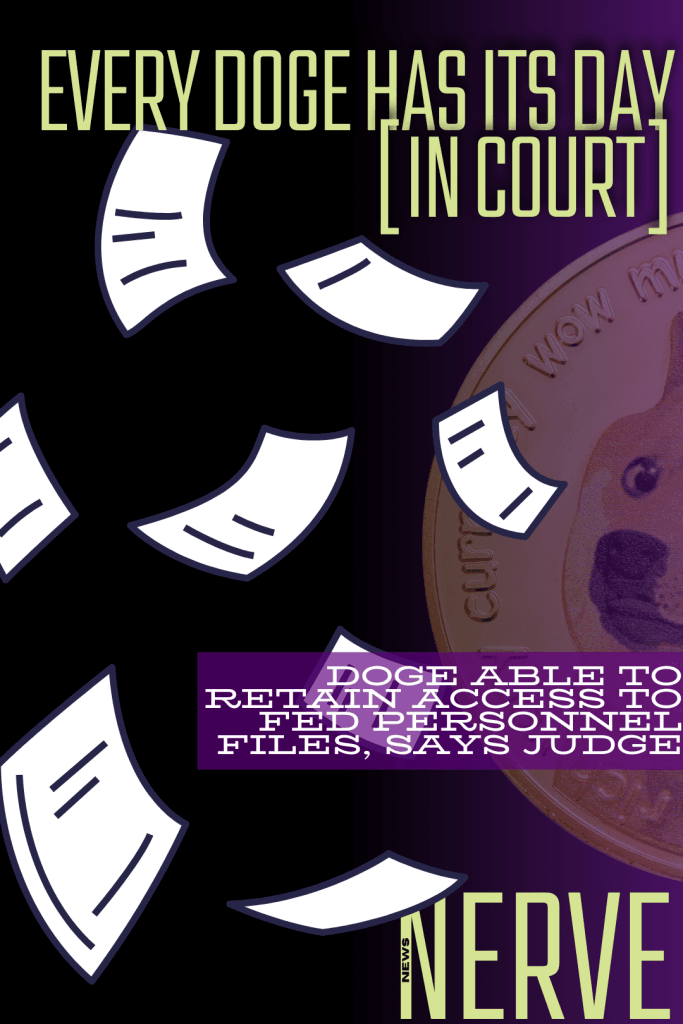Fourth Circuit Grants DOGE Continued Access to Federal Employee Data and Overturns Lower Court Injunction in Split 2-1 Decision
In a significant victory for the Trump administration’s efficiency initiative, the U.S. Court of Appeals for the Fourth Circuit ruled Tuesday that the Department of Government Efficiency (DOGE) can maintain its access to sensitive federal personnel data from multiple agencies. The 2-1 decision overturned a lower court injunction that had previously blocked DOGE’s access to personal information from millions of federal employees, retirees, and benefit recipients.
The case, American Federation of Teachers v. Bessent (Case No. 25-1282), centers on DOGE’s access to databases maintained by the Department of Education, Office of Personnel Management (OPM), and Treasury Department. The appeals court ruling ensures that DOGE affiliates embedded within these agencies can continue accessing systems containing Social Security numbers, financial records, personnel files, and other sensitive data.
The Privacy Battle Behind the Decision
Federal employee unions and advocacy groups, led by the American Federation of Teachers, had argued that DOGE’s “unfettered access” to personal information violated the Privacy Act of 1974 and the Administrative Procedure Act. The lawsuit, representing over 2 million people including current and former federal employees, military veterans, and student aid recipients, sought to block what they characterized as unauthorized data mining.
The plaintiffs argued that DOGE personnel lacked proper authorization and oversight to access highly sensitive databases containing personally identifiable information (PII) including:
- Social Security numbers and taxpayer identification numbers
- Bank account and financial asset information
- Home addresses and family information
- Federal student loan records
- IRS taxpayer data
- Personnel and disciplinary records
U.S. District Judge Deborah Boardman initially sided with the unions in March, issuing a preliminary injunction that blocked DOGE’s access. Boardman ruled that the government had failed to adequately explain why DOGE needed such broad access to perform its efficiency mission.
Majority Opinion: Efficiency Requires Access
Writing for the majority, Judge Julius Richardson, a Trump appointee, rejected the unions’ arguments and ruled that the plaintiffs likely lacked standing to sue. Richardson compared DOGE to a consultant hired to improve a local library’s efficiency.
“Barring the consultant at the library doors and requiring her to specify the precise records she needs to improve the library before she knows what improvements are needed would seem to get the order of operations precisely backward,” Richardson wrote.
The judge emphasized that DOGE employees were tasked with a “broad and open-ended duty” to improve efficiency and IT systems across government. He argued that demanding DOGE explain in advance exactly what information they needed was asking for “something just short of clairvoyance.”
Richardson noted that modernizing agency software and IT systems would logically require administrator-level access to those systems, including internal databases. He was joined by Judge G. Steven Agee, a George W. Bush appointee.
Privacy Concerns and the Dissenting View
Judge Robert King, a Clinton appointee, strongly dissented from the majority ruling, writing that the district court “did exactly what it was obliged to do.” King had requested that the full Fourth Circuit panel hear the case, but that request was denied.
Privacy advocates expressed alarm at the decision’s implications. Alexandra Reeve Givens, CEO of the Center for Democracy and Technology, said the ruling undermines the nation’s “bedrock values” related to privacy.
“These events are part of a disturbing effort by the federal government to amass information about people and overturn longstanding privacy norms under the guise of fighting fraud, waste, and abuse,” Givens said. “Now, the courts are giving this administration the greenlight to continue playing fast and loose with all of our most sensitive information.”
The Scope of DOGE’s Data Access
The court’s decision affects multiple agencies and vast amounts of personal data:
Office of Personnel Management: Systems containing federal job postings, applications, onboarding records, performance management data, and electronic personnel files of millions of current employees, former civil servants, and federal job applicants.
Department of Education: Federal student loan data and records affecting millions of borrowers and aid recipients.
Treasury Department: IRS systems containing comprehensive taxpayer information, including income, assets, and financial records.
The ruling maintains the status quo established when the appeals court paused the lower court’s injunction in April. Social Security Administration systems remain protected under a separate ongoing case.
DOGE’s Efficiency Mission and Legal Framework
DOGE was created by Executive Order on January 20, 2025, with a mandate to “modernize federal technology and software to maximize governmental efficiency and productivity.” While Elon Musk serves as the public face of the initiative, DOGE staff have largely dispersed as political appointees throughout individual agencies.
The Trump administration argued that Executive Order 14,158 provides DOGE personnel with the authority to access “all unclassified agency records, software systems, and IT systems” to perform their duties. Government lawyers contended that such access was necessary for DOGE to audit programs for waste, fraud, and abuse, and to implement workplace reforms.
Supreme Court Precedent Supports Government
Judge Richardson noted that the Supreme Court had ruled in a similar case involving Social Security Administration data in a manner that supported DOGE’s access rights. This precedent strengthened the government’s position that broad database access was legally justified for efficiency reviews.
The decision also referenced the probabilistic challenge facing plaintiffs who must prevail on multiple independent legal issues to succeed overall. Richardson wrote that this “stacks the deck against a plaintiff” when likelihood of success must be demonstrated across numerous complex legal questions.
Ongoing Legal Challenges
While this ruling represents a major victory for DOGE, multiple related lawsuits continue to challenge the organization’s operations and data access practices. The case will now return to the Maryland federal district court, where Judge Boardman will reconsider the preliminary injunction request in light of the appeals court guidance.
The decision comes as DOGE claims to have identified significant government savings, though actual verified savings figures remain disputed. The organization has also been involved in workforce reductions across multiple federal agencies, with tens of thousands of federal workers accepting buyout offers or facing termination.
Implications for Federal Privacy Rights
The Fourth Circuit’s ruling sets an important precedent for how courts balance government efficiency initiatives against individual privacy rights. The decision suggests that broad data access may be legally justified when connected to presidentially-directed reform efforts, even when that access encompasses sensitive personal information of millions of Americans.
For federal employees and benefit recipients, the ruling means their personal data remains accessible to DOGE personnel, despite concerns about proper authorization, oversight, and data security safeguards. The decision underscores the ongoing tension between government transparency, efficiency efforts, and privacy protection in the digital age.
As this legal battle continues to unfold across multiple courts, the Fourth Circuit’s decision provides the Trump administration with crucial legal backing for its controversial efficiency initiative, while privacy advocates plan their next moves in what promises to be a protracted legal fight over federal data access rights.




